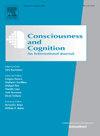解开思路:探究环境因素对走神的影响
IF 2
3区 心理学
Q2 PSYCHOLOGY, EXPERIMENTAL
引用次数: 0
摘要
本研究通过利用在线平台完成既定的实验室任务,调查了情境因素对走神(MW)的影响。我们研究了直接的绩效反馈、关于任务进度的信息和被监控的感觉如何影响任务中的绩效指标,这些指标用于调查MW对执行控制的影响。我们的研究结果表明,具体的绩效反馈,而不是一般的积极反馈,持续提高绩效,但两者都不影响自我报告的MW。相反,对任务进度的反馈和被监控的感觉增加了自我报告的MW,这可能反映了参与者由于环境干扰而产生的自我意识。有趣的是,信息传递任务进度也大大提高了性能。这些发现强调了绩效反馈的潜力,以减少在线环境中MW对任务绩效的负面影响。此外,研究结果表明,关于任务进展的信息,以及在实验过程中被监控的概念,可以影响任务焦点,在调查认知任务期间注意力的波动时,应该考虑到这一点。本文章由计算机程序翻译,如有差异,请以英文原文为准。
Unravelling the threads of thought: Probing the impact of contextual factors on mind wandering
This study investigated the influence of contextual factors on mind wandering (MW) by leveraging an online platform for an established laboratory task. We investigated how direct performance feedback, information about task progression, and the feeling of being monitored influenced performance indices in a task used to investigate the effect of MW on executive control. Our results indicate that specific performance feedback, and not general positive feedback, consistently improved performance, while neither impacted self-reported MW. Conversely, feedback on task progression and the feeling of being monitored increased self-reported MW, possibly reflecting participant self-awareness due to contextual distractions. Intriguingly, information relaying task progression also substantially increased performance. These findings highlight the potential of performance feedback to reduce the negative effects of MW on task performance in an online setting. Additionally, the findings suggest that information about task progression, as well as the notion of being monitored during the experiment can influence task focus and should be taken into consideration when investigating fluctuations of attention during cognitive tasks.
求助全文
通过发布文献求助,成功后即可免费获取论文全文。
去求助
来源期刊

Consciousness and Cognition
PSYCHOLOGY, EXPERIMENTAL-
CiteScore
4.30
自引率
8.30%
发文量
123
期刊介绍:
Consciousness and Cognition: An International Journal provides a forum for a natural-science approach to the issues of consciousness, voluntary control, and self. The journal features empirical research (in the form of regular articles and short reports) and theoretical articles. Integrative theoretical and critical literature reviews, and tutorial reviews are also published. The journal aims to be both scientifically rigorous and open to novel contributions.
 求助内容:
求助内容: 应助结果提醒方式:
应助结果提醒方式:


